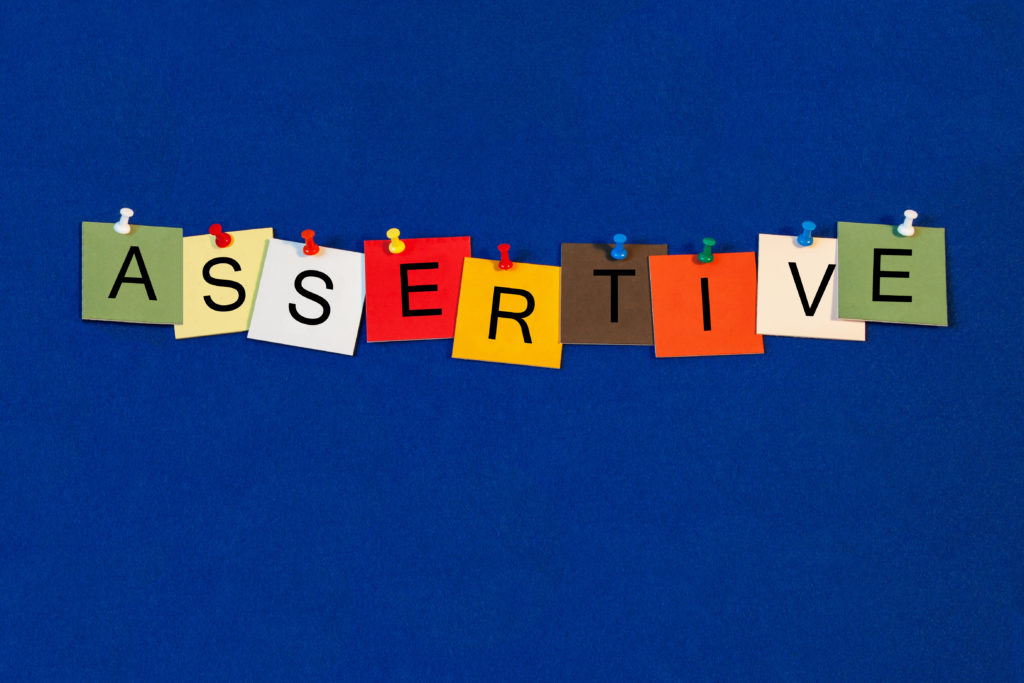
For many of us, it is a mystery how some people are able to simply walk about the place filled with confidence and self-assurance. If you are one of the many people for whom these qualities do not come naturally, it can seem almost alien that other people are able to so easily exude self-esteem and confidence.
But while it can often appear that this is some innate gift that you are either born with or you aren’t, confidence and self-esteem are both things that you can learn and develop on your own.
One of the most important aspects of confidence is the ability to assert yourself. Being assertive means that you do not immediately back down when your convictions are challenged. People who are assertive are able to stand their ground and more importantly, they are able to advocate for what they believe in.
In both our professional and personal lives, assertiveness is a valuable skill to have, and it actually offers a number of benefits to our emotional health and sense of self.
Why Assertiveness Matters

Some people mistakenly believe that being assertive is in some way inherently negative or aggressive. However, as we will come on to discuss, being assertive is very different from being aggressive, and the intended goals are very different as well. When we are aggressive towards other people, it inevitably leads to a cascade of negative emotions within ourselves.
By contrast, being assertive is about, well, asserting yourself and taking a firm but justified and dignified stand. The goal of being assertive is not to diminish the person that you are conversing with, but rather to enhance your own conviction.
Research from the Mayo Clinic suggests that being assertive confers a number of benefits to us both in the short and the long terms. In the immediate sense, being assertive can be a way of building your own confidence, and can also help to improve your self-esteem. Over the long term, being assertive is associated with improved coping skills, less aggression and anger, and better overall communication.
Assertiveness is an essential communication skill for adults, although it is one that many of us deploy inappropriately sometimes. For people who have spent most of their lives being passive and not asserting themselves, learning to assert yourself as an adult can be an absolute minefield.
Some people seem to just be born with innate communication skills, and many of the best communicators also exude confidence. But for people to whom this does not come naturally, it can be difficult to read the fine line that exists between assertive behaviour and behaviour that might be read as actively aggressive.
In your personal life, learning to be assertive can enable you to be heard in social groups where you currently feel that you are often overlooked. You might even find that it enables you to find your voice and perhaps reassert your position within the group.
If you are someone who wants to be more assertive and to develop your assertiveness as a positive communication skill, this article is for you. Below are some words of advice for those who want to be more assertive, but don’t really know where to begin.
1. Commit to It

Making a lasting change to our personalities and attitude is always going to be a relatively difficult undertaking. Anyone can introduce a new change in their life, like being more assertive, for example, for a day or two. But if you want to really reap the benefits of being a more assertive person, especially the longer-term benefits that are the real prize here, then you need to instigate changes that you can stick to.
If you want to develop your assertiveness, then it is no good if you fold as soon as someone else challenges you. If you are going to make your new assertive attitude stick, you need to be consistent in the way that you deploy it.
Now, it is not exactly easy to accomplish either of these things. In fact, if you are an adult who is learning about how to assert themselves for the first time, then you may initially find it somewhat awkward to assert yourself, especially to people who do not expect it of you. To this end, it is better to start with small baby steps than it is to dash in at top speed and end up tripping over yourself.
Ultimately, you want assertiveness to become a habit for you – something that you do automatically. The only way to achieve this is to train yourself to react assertively when appropriate. The only way that you are going to know when it is appropriate to assert yourself, is by taking a consistent approach.
2. Don’t Conflate Assertiveness with Aggression

A very common beginner’s mistake when someone is learning to be assertive for the first time is that they cross the line from assertiveness into aggression. While assertiveness and aggression can sometimes appear similar, they are very different both in intent and in execution. If you are being assertive, you are forcefully putting yourself forward and standing by your convictions, but you are not doing so with the intention of diminishing or demeaning your opponent.
On the other hand, aggression is a deliberate attempt to instil a sense of submission in your opponent. We become aggressive as a way of exerting dominance over others, and this is not what being assertive is about. Moreover, while being assertive can earn you respect from other people, being aggressive is unlikely to elicit the same reaction.
A good way of avoiding any misunderstandings is to make sure that when you are asserting yourself, you are using language that is neutral and conciliatory, not inflammatory or prejudicial.
3. Consider Assertiveness Training

Many people have found that taking on formal assertiveness training is an effective way of learning how to introduce assertiveness into their life in a healthy way. You can find assertiveness training courses at search portals like findcourses.co.uk.
4. Listen More

A big part of the reason that some people end up crossing from assertiveness into aggression is that they aren’t listening properly to the person that they are talking to.
It only takes a small amount of miscommunication to completely change the tone and implication of a sentence. When you are being assertive, you are often treading a fine line anyway, especially if you are talking to someone who themselves is quite introverted and passive.
If you are going to undertake to be more assertive, then you should also undertake to listen more to those that you speak with. Try to see their point of view, and consider that before you assert yourself too forcefully.
Being more assertive can benefit you in both your personal and professional life. Not only will it leave you with more self-esteem and confidence, but it can also reduce your stress and anxiety in the longer term.







